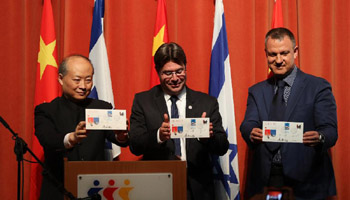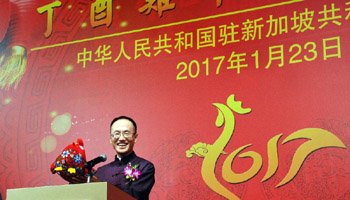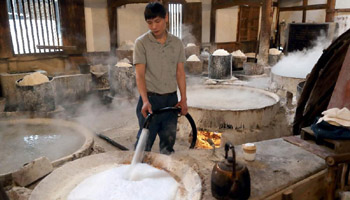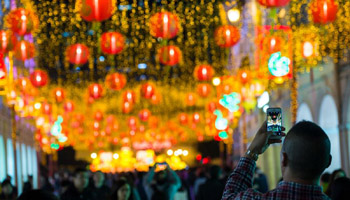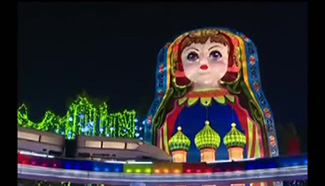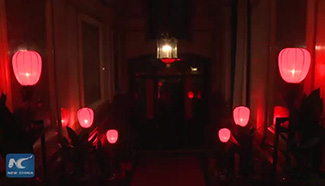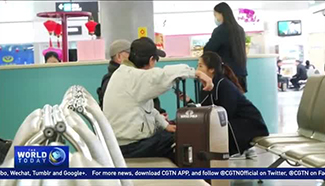KUALA LUMPUR, Jan. 24 (Xinhua) -- A young woman with long silk sleeves danced to the music of Butterfly Lovers' Violin Concerto, sometimes spinning herself with a loud applause. But take a closer look; you will be amazed to find that the girl was only a puppet handled by a performer.
It was at Sibu in the Malaysian state of Sabah on Jan. 19. The performers from North Sichuan Puppet Troupe was on a tour to Malaysia, where its ethnic Chinese communities, almost one fourth of the total population, still value Chinese traditions and celebrate the Spring Festival, or Chinese New year.
Aside from Sibu, the troupe also visited the capital Kuala Lumpur and Kuching, where local people present at the performance gasped with admiration at the superb skills of the performers, who can miraculously make the 1.5-meter puppets blow out or light up a lamp, kowtow and bow, change face and even spit fire.
Sometimes, the puppet looks like a real man and is exquisitely modeled with flexible five sense organs. Dating back to more than 300 years ago, the folk art has become an intangible cultural heritage in China. No wonder they could be chosen by the China Overseas Exchange Association as one of the representative art troupes to offer overseas Chinese communities a bite of the old Chinese art.
At one point, a puppet, dressing as a modest and self-disciplined gentleman, took up the brush and wrote down four Chinese characters - "Si Hai Tong Chun," which means "people all around the world celebrate the Spring Festival" as well as words "Selamat Malam," which means good evening in Malay.
People gave the performer another round of applause when they heard that the puppet, perhaps one of the largest puppets in the world, weighs some 15 to 20 kilograms, which renders normal people impossible to handle such complicated movements.
Then it was the performance of "Bian Lian," or "Face-changing," one of the most famous and most mysterious kind of dramatic art in Sichuan opera. Performers changed from one face to another almost instantaneously with the swipe of a fan, a turnaround of their head and a wave of the sleeve.
In the culmination of the performance, several face-changing performers also brought on stage some puppets and showed how the puppets and the performers could change face together.
Kong Hian Khim, a senior management official of the local Chinese community, said the performance not only broadened people's mind, but also help people realize the profoundness of Chinese culture. "While we appreciate the appeal of culture, we still have an affinity with our ancestral country," said Kong.
Lam Lee Hong, one of the audience who also participated in the preparation work, said the performance totally exceeded his expectation. "Many people wanted to come, but we only had 2,500 seats, so we hope more Chinese troupes can come to bring on the show," she said.
Fu Jijun, the Chinese consul general in Kuching, said the performances are in line with the spirit of the Belt and Road Initiative, which advocates people-to-people exchanges. He said such cultural events can help the two countries better understand each other while improving cooperation in economic and educational spheres.


